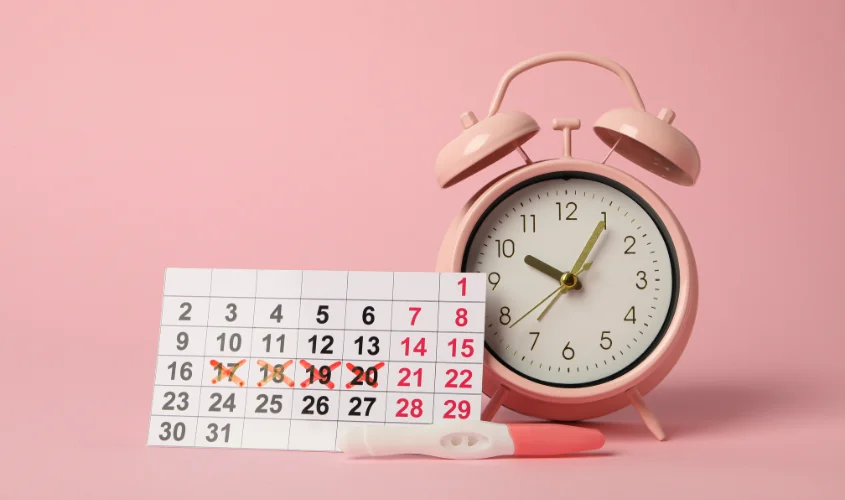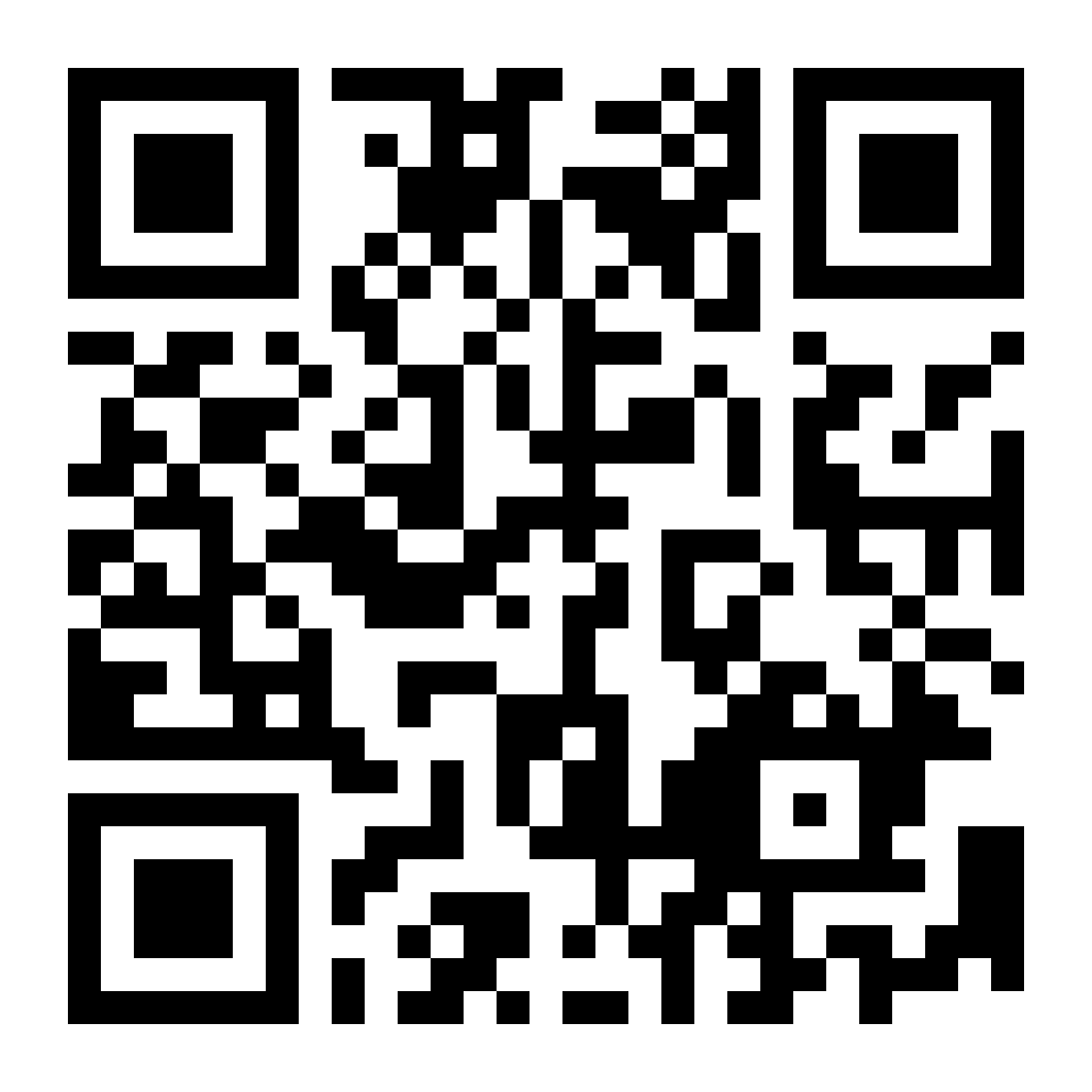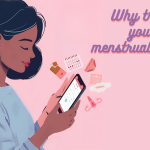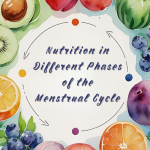
- 16.10.2024
- Menstrual Health Blog
Today we want to talk about delays in the female menstrual cycle. Late ovulation is an important aspect that can significantly impact a woman’s menstrual cycle and the chances of getting pregnant.
The Bare Facts
It is generally considered late ovulation if it occurs after the 21st day of the cycle. Traditionally, ovulation occurs on the 14th day of the menstrual cycle. On this day, as well as five days before, the likelihood of getting pregnant is the highest.
However, on average, only one in ten women ovulates exactly on the 14th day. The vast majority of women have irregular cycles, which can vary in length from 21 to 35 days. These variations are not abnormal, but they can complicate the accurate prediction of ovulation day and, consequently, pregnancy.
The Selin app allows you to clearly mark all the time intervals and track symptoms (more on this below). This gives you a much better chance of getting pregnant, regardless of how shifted your cycle may be.
Late Ovulation and Its Root Causes
Late ovulation is a rather complex issue. There are several reasons that can affect the cycle duration in women, including:
- Certain medications – chemotherapy drugs, antidepressants, steroids, thyroid medications
- Stress. This refers to prolonged states of depression, neuroses. Half an hour of melancholy doesn’t count.
- Thyroid problems. This includes both hypofunction (insufficient hormone production) and hyperfunction (excessive hormone production) of the thyroid.
- Polycystic ovary syndrome. With this condition, irregular periods occur (up to their absence), as a result of which follicle maturation and the subsequent release of the egg may not happen.
- Breastfeeding. Changes in the menstrual cycle are typical during breastfeeding. During this period, periods can be irregular or absent altogether.
If breastfeeding is clear, in any of the other situations described above, you should consult a specialist doctor, regardless of whether you are planning a pregnancy or not.
Late Ovulation and Its Symptoms
Tracking the symptoms of late ovulation is not that difficult. Here are a few key symptoms that may indicate this condition.
- Basal body temperature, i.e., your lowest daily temperature. Typically, it drops before ovulation and rises afterward.
- Cervical changes. By feeling your cervix, you can notice that during ovulation, it feels wetter and softer.
- Cervical discharge. You may notice it on your underwear throughout the month. During ovulation, it often becomes stretchy and watery, whereas on other days, it is sticky and thick.
A number of less obvious symptoms are also often noted, such as discomfort in the abdomen, breast tenderness, and increased libido.
By entering these symptoms into the Selin app, you will eventually see how they play a role in your cycle, allowing you to more accurately mark the optimal days for conception.
Chances of Pregnancy
Undoubtedly, in this situation, a successful pregnancy may not be so easy to achieve. Even knowing your situation, it can be quite difficult to predict the most successful days for conception.
First of all, we urge you not to despair. Instead, take important steps toward a happy pregnancy. By simply observing your cycle, you can draw crucial conclusions about the regularity of your symptoms. Thanks to the Selin app, you can approach the issue wisely! Enter all the necessary data into your calendar, and the app will analyze it.
And if you decide to visit a doctor, the data collected in your app will also be an important aid. They will help the doctor determine the necessary treatment measures more accurately and quickly.
After exploring the causes, symptoms, and solutions for late ovulation, it’s essential to understand the role of healthcare professionals—specifically, what a gynecologist should never do.














